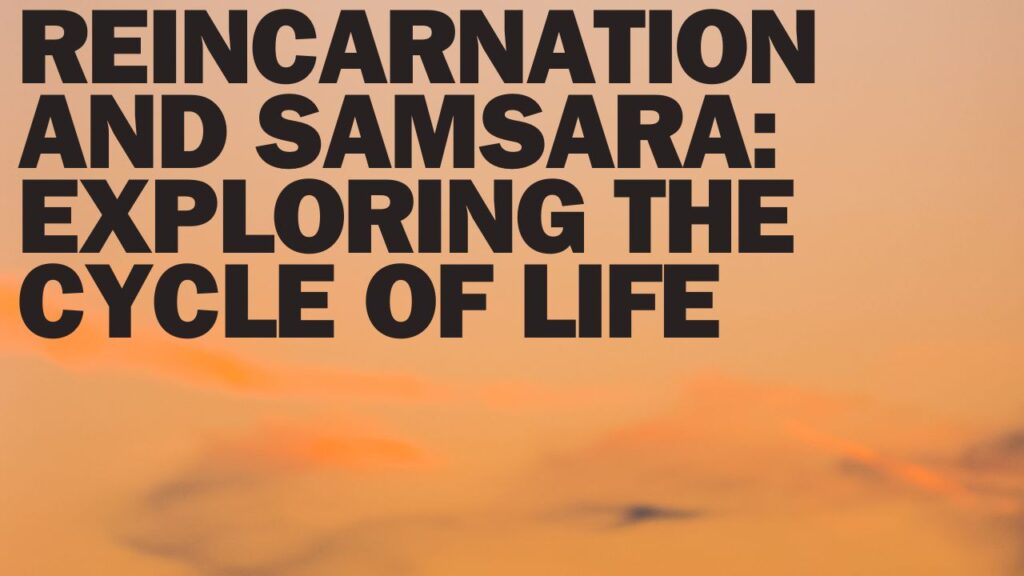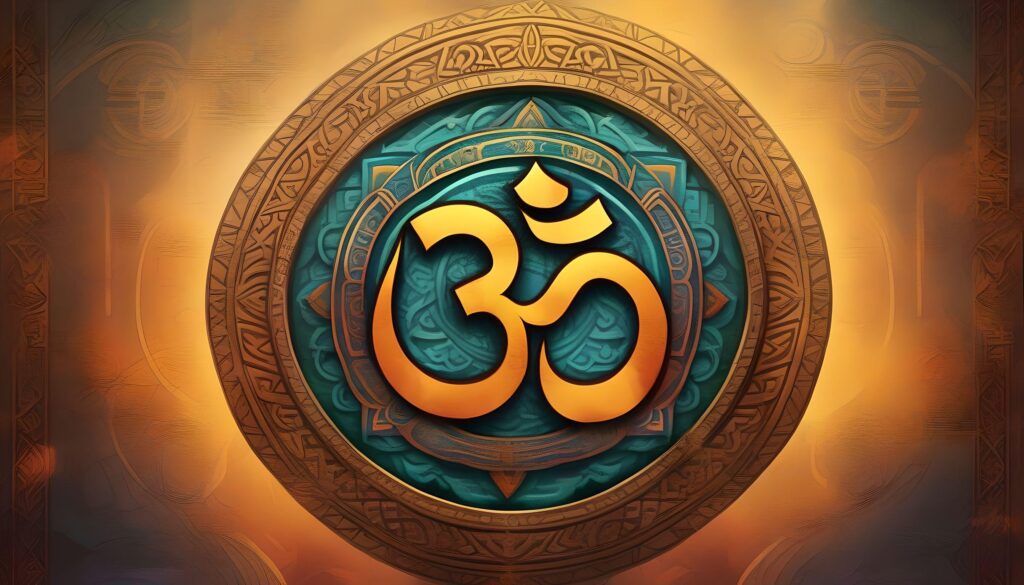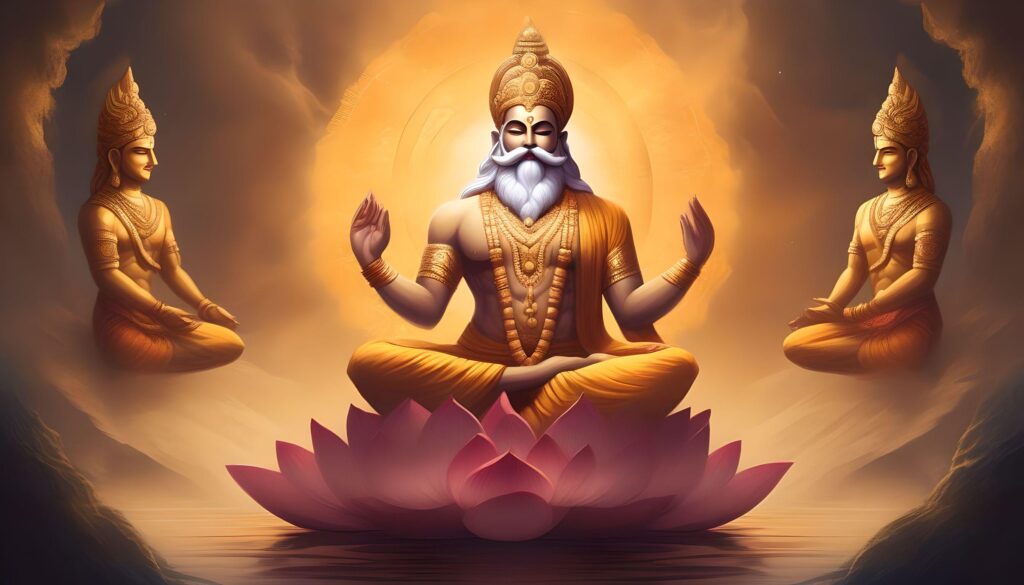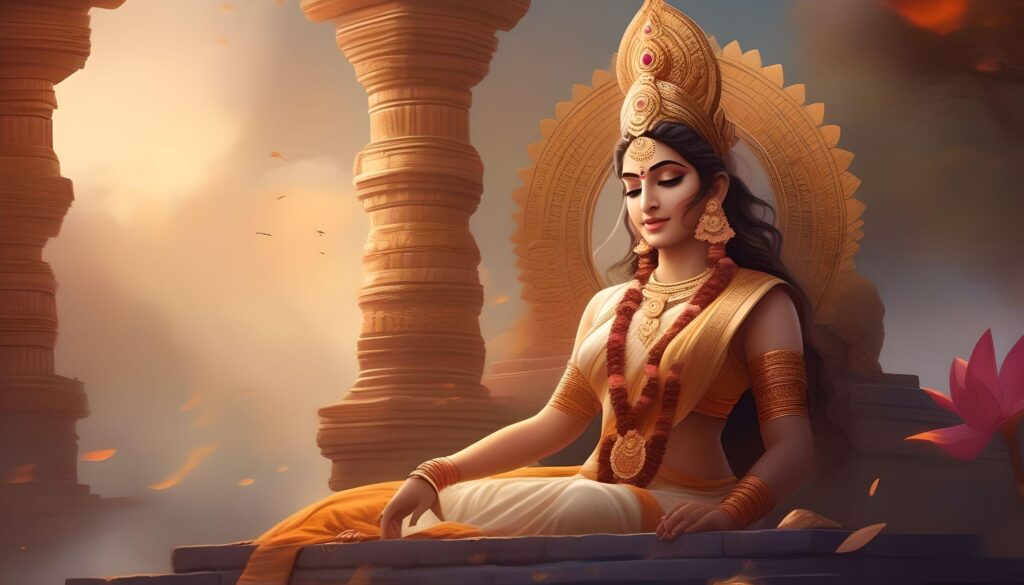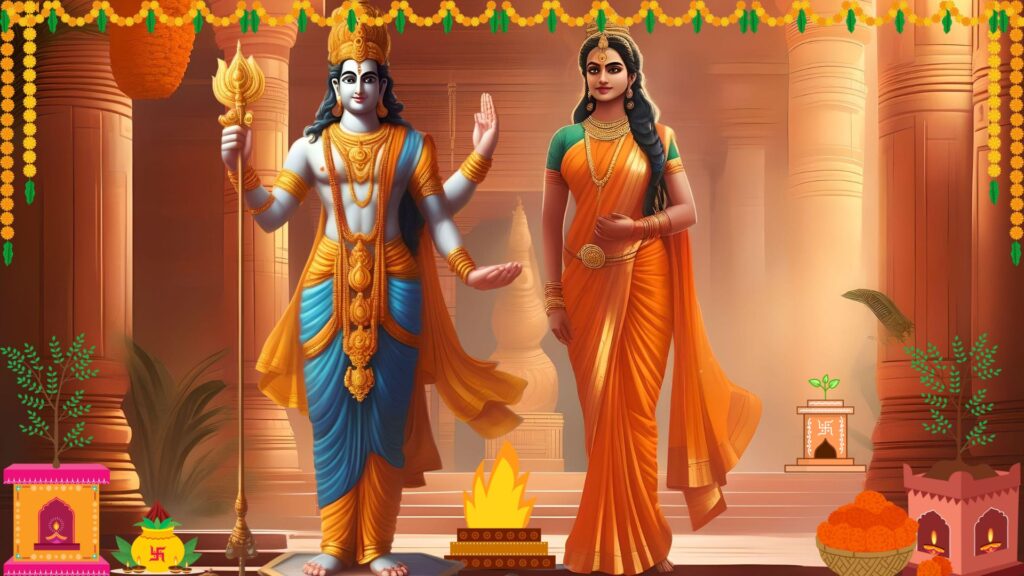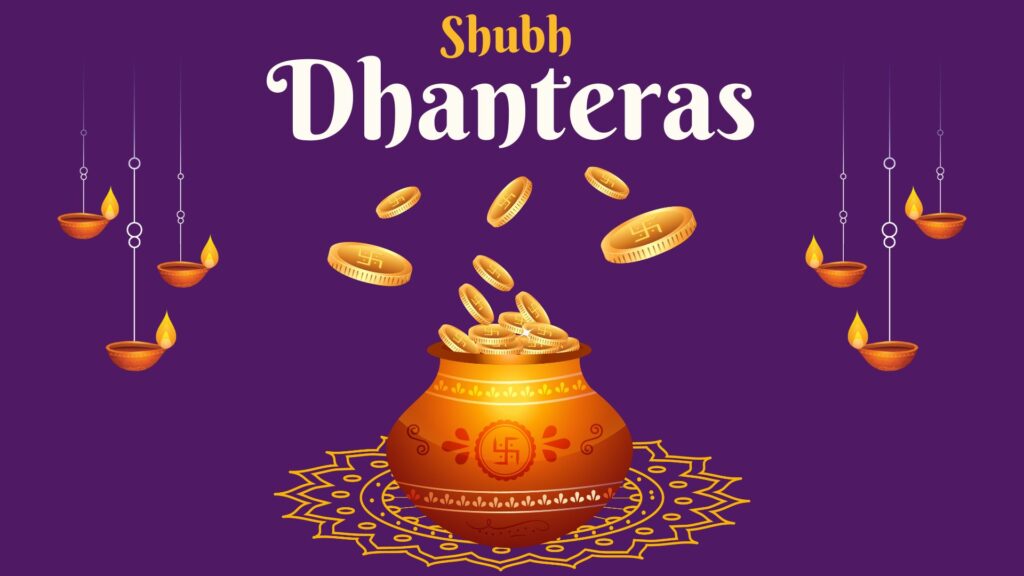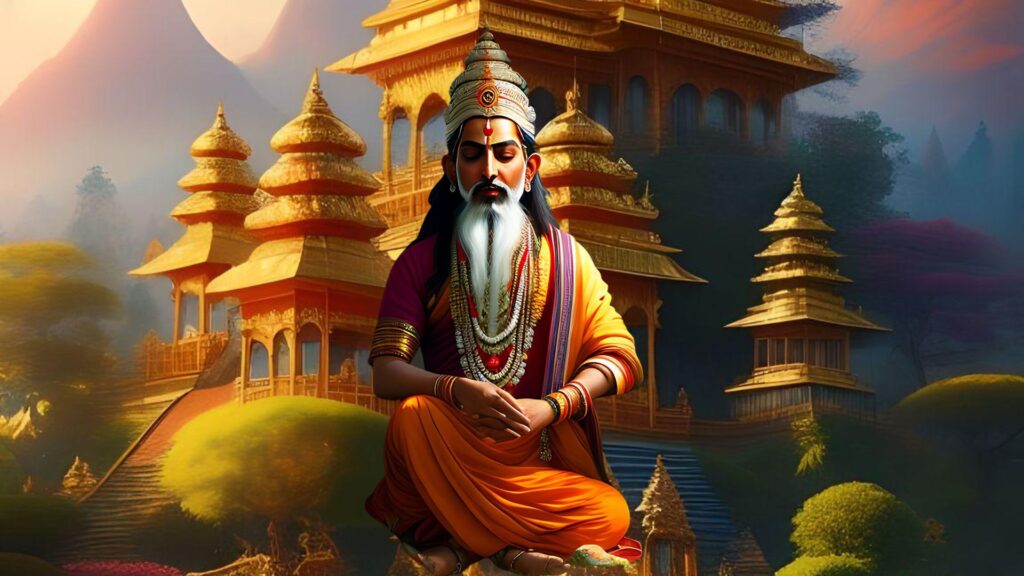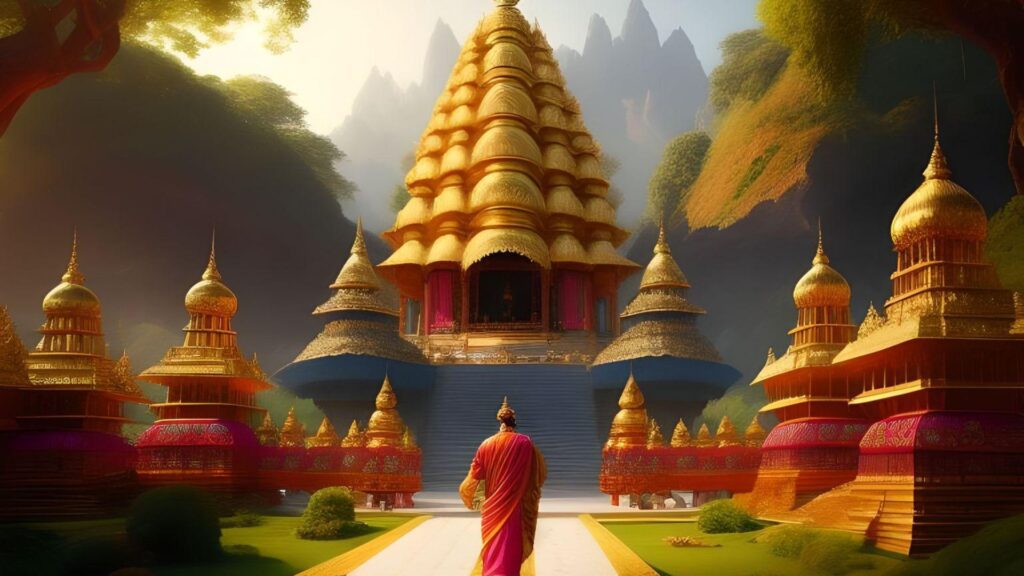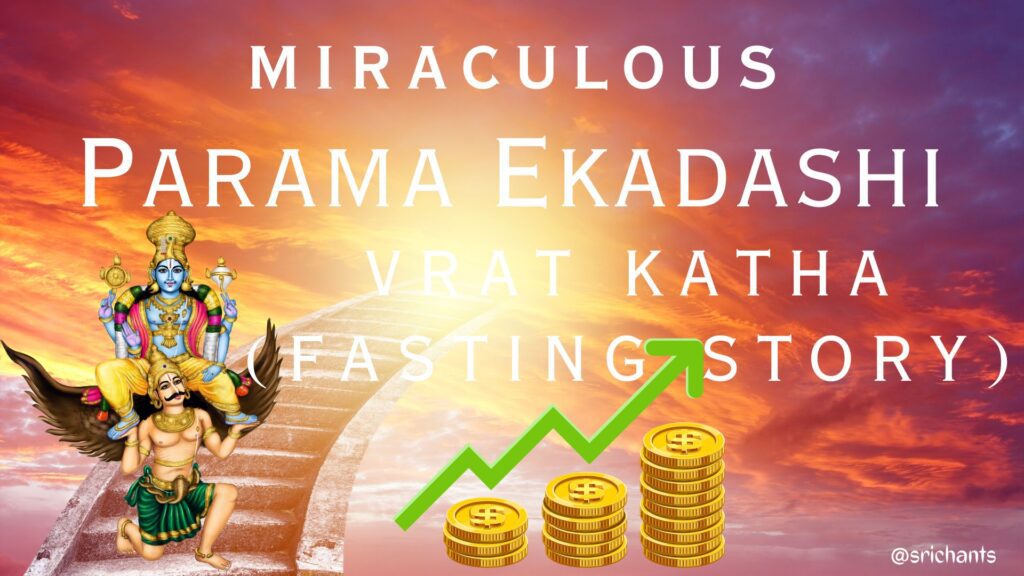Reincarnation and Samsara: Exploring the Cycle of Life
Introduction
Reincarnation and Samsara are profound notions that have their origins in Hinduism and offer valuable perspectives on the pursuit of liberation and the cycle of life. These ideas influence the comprehension of moksha, the ultimate objective, and existence. This article aims to examine the complex interplay between samsara and reincarnation, with a particular focus on the philosophical and spiritual dimensions of these notions.
The Concept of Reincarnation
Transmigration, or reincarnation, is a fundamental tenet of Hinduism. It implies that the soul is reborn into a new body after mortality, thus perpetuating the cycle of life. This notion suggests that the repercussions of decisions and actions taken in one incarnation extend into subsequent lives. Intimate to the concept of samsara, the perpetual cycle of birth, death, and regeneration, is the notion of reincarnation.
Understanding Samsara
Samsara denotes the perpetual cycle of being, during which the soul undergoes a multitude of births and deaths. The perpetual progression of attachment, desire, and karma defines it. In accordance with Hindu philosophy, samsara denotes the eternal and interconnected nature of existence by virtue of its ambiguous commencement and conclusion. The notion of samsara underscores the ephemeral quality of material existence and the quest for emancipation from this recurring pattern.
Karma: Cause and Effect
At the core of the samsara concept resides the fundamental principle of cause and effect, karma. The conditions of an individual’s next existence are determined by karma, which is formed through one’s present life’s actions and intentions. Positive actions produce favorable future outcomes due to the generation of positive karma; conversely, negative actions yield unfavorable consequences. The progression of karma has an impact on the soul’s odyssey through samsara.
The Quest for Liberation: Moksha
Moksha signifies the attaining of enlightenment and liberation from the cycle of samsara; it is the pinnacle of Hinduism. It is the condition of merging with the divine and transcending the limitations of individual existence. Moksha, which liberates the soul from the perpetual cycle of birth and death, is regarded as the pinnacle of spiritual liberation. Moksha can be attained through a variety of means, including the study of scriptures, devotion to an individual deity, and the implementation of meditation techniques.
Dharma: Duty and Righteousness
The ethical and moral duties, or dharma, are of paramount importance in the Hindu conception of existence and emancipation. It comprises the obligations, commitments, and moral rectitude that an individual is bound by in accordance with their caste, gender, and life stage. Dharma provides guidance to individuals on how to fulfill their social and spiritual obligations while living a virtuous life. Positive karma is accumulated through the practice of dharma, which also facilitates the attainment of moksha.
The Nature of Atman and Brahman
The concepts of atman and Brahman, which are fundamental to comprehending the essence of existence and liberation, are introduced in Hindu philosophy. Atman denotes the intrinsic nature of the individual soul, signifying their fundamental nature, whereas Brahman symbolizes the supreme reality, the all-encompassing universal consciousness. The Upanishads assert that atman and Brahman are composed of the same material, and attaining liberation requires an understanding of their intrinsic unity.
The Path to Liberation: Three Paths
Hinduism offers three primary paths, known as the three yogas, that individuals can follow to attain moksha. These paths are:
- Bhakti Yoga: The path of love and devotion towards a personal deity.
- Karma Yoga: The path of selfless action and fulfilling one’s duties.
- Jnana Yoga: The path of knowledge and self-realization through contemplation and meditation.
Each path caters to different temperaments and inclinations, and they are not mutually exclusive. Many individuals combine elements from multiple paths to progress on their spiritual journey.
The Historical Development of Hinduism
Hinduism has undergone a profound transformation over millennia, assimilating a multitude of philosophical concepts, rituals, and beliefs. The antecedents of the religion can be identified in the Vedic period and the Indus Valley Civilization. As time progressed, significant sects within Hinduism emerged, including Vaishnavism, Shaivism, and Shaktism. Its development was influenced by the proliferation of Hinduism in Southeast Asia and its interactions with other religions. In addition to reform movements like Brahmo Samaj and Arya Samaj, the religion was heavily involved in India’s independence movement.
Sacred Texts: Sources of Wisdom
Sacred texts are of profound significance within the Hindu faith, as they impart spiritual insights, guidance, and knowledge. The Vedas, being the most ancient scriptures, serve as the bedrock for Hindu rituals and philosophy. The philosophical concepts explored in greater depth in the Upanishads encompass the essence of atman and Brahman. Epics such as the Mahabharata and the Ramayana recount moral teachings and mythological tales. In the Puranas, cosmogony, cosmology, and the lives of deities are elaborated. In addition to philosophical sutras and scriptures, these texts enrich the fabric of Hindu wisdom.
Rituals and Practices
Hinduism comprises an extensive collection of rituals and practices that are intricately linked with the philosophical notions of samsara and reincarnation. Hindus observe a wide range of religious practices, including temple worship and domestic rituals. Practicing daily offerings, sacrifice, and worship is vital for establishing a relationship with the divine. Rituals that are linked to the occurrences of birth, marriage, and death serve to commemorate significant turning points in the life of an individual. Additionally, devout Hindus frequently engage in pilgrimages to holy sites.
Hinduism and the World
The impact of Hinduism transcends national borders and permeates various religions and cultures. Hinduism has had historical and philosophical interactions with Jainism and Buddhism, as well as Islam and Christianity over the course of history. Presently, Hinduism maintains a diasporic influence across the globe, wherein Hindu communities flourish in various nations. Modernization and evolution of the religion persist, all the while the preservation of its foundational doctrines and customs.
Conclusion
Reincarnation and samsara are fundamental tenets of Hinduism, providing comprehensive understandings of the cyclical nature of existence and the quest for emancipation. By integrating the notions of karma, moksha, dharma, atman, and Brahman, one can attain a holistic comprehension of the nature of being and the supreme objective of spiritual enlightenment. Spiritual and philosophical traditions of Hinduism, which are bolstered by sacred texts and rituals, serve as a compass for those seeking liberation. By delving into these concepts, an individual can develop a more comprehensive understanding of the intricate and profound wisdom that is intrinsic to Hindu thought.
Additional Information:
- It is essential to emphasize the interconnectedness of all sections to provide a holistic understanding of reincarnation and samsara.
- The tone of voice should be informative, introspective, and respectful towards Hindu beliefs and practices.
- Use relevant images, quotes, and examples to enhance the reader’s engagement with the content.
- Include hyperlinks to external sources for further reading and exploration.
- Incorporate relevant subheadings, bullet points, and numbered lists to enhance readability and organization.
